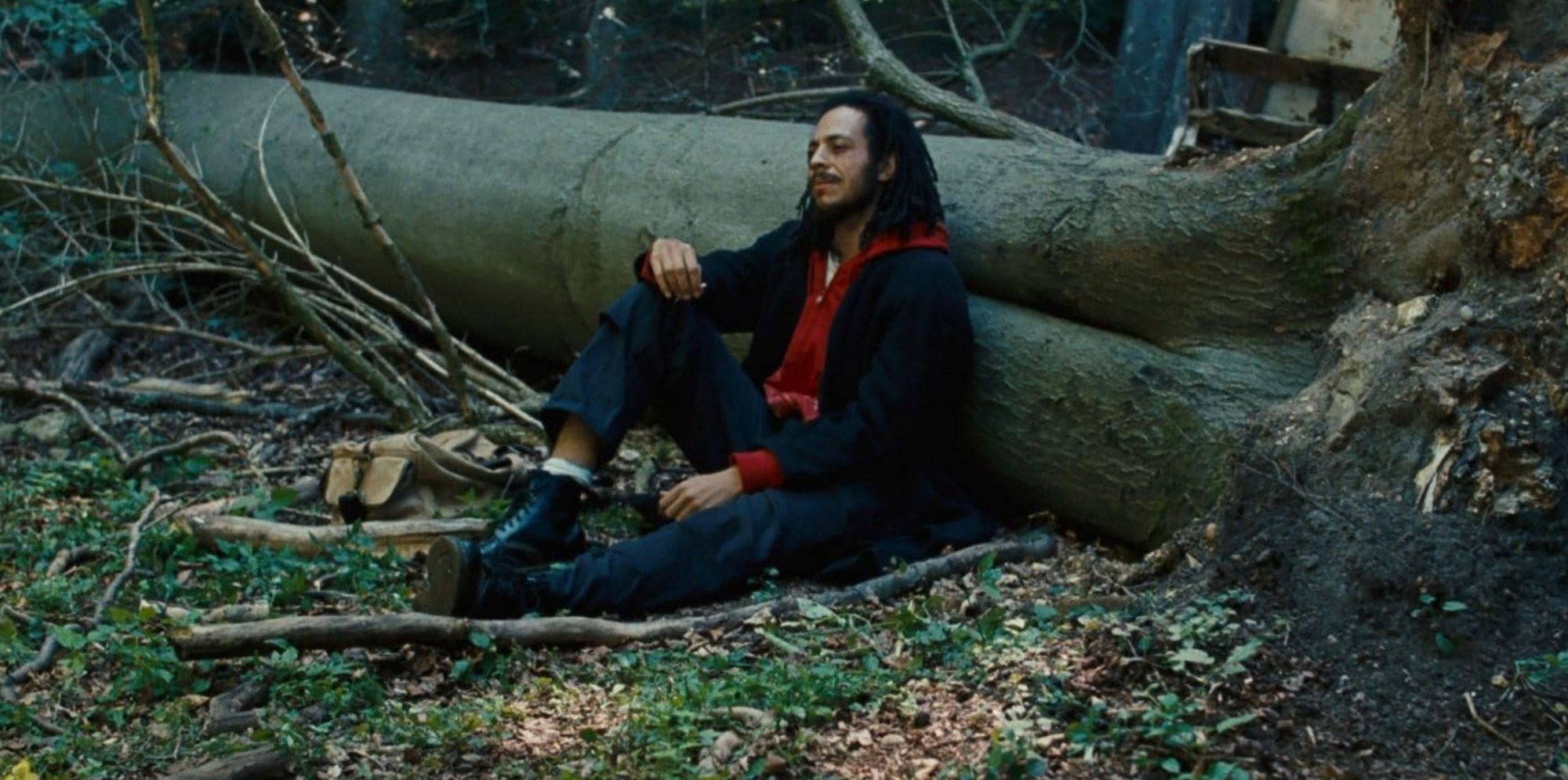
- Interviews
“Killing Boris Johnson”
As announced by this headline-grabbing title, it would be an understatement to describe up-and-coming filmmaker Musa Alderson-Clarke as unhappy with former British Prime Minister Boris Johnson, who ran the United Kingdom from 2019 to 2022. In Alderson-Clarke’s protagonist Kaz (Shadrach Agozino), we meet a grieving man whose mother suffered from depression and who killed herself during the lockdown of the Covid pandemic, a tragedy that coincided with the time when Johnson himself was attending an office Christmas party. Kaz examines the hypocrisy of Johnson’s administration’s forbidding his mother to spend time with her family over the Christmas period – an order which may have brought about her death – while Johnson was having fun. Simply put, it is too much to bear. Kaz dons a Boris Johnson mask and takes matters into his own hands.
At the Golden Globes lounge at the Cannes Film Festival, Alderson-Clarke is joined by his producer Solomon Golding to discuss their project.
Where did you get the idea for this film?
Alderson-Clarke: Towards the end of the pandemic lockdown, and at the start of my course (at the National Film and Television School) my Mom passed away. I drew on that experience to create Killing Boris Johnson. It was (Johnson’s) arrogance that I wanted to tap into when I was writing the screenplay.
Golding: We’d had conversations about this idea and how best to make a film using that energy and using that feeling and the things that we’d been talking about as it pertained to the pandemic and the isolation. Kaz is a character who is trying to understand his grief and how that manifests.
What was the biggest challenge in making the film?
Alderson-Clarke: The logistics. You’re always fighting against time, but what I can say is while I was writing the script everyone was very supportive in how I wanted to express the story and the character I wanted to explore.
The title’s obviously controversial. Did you ever consider it might be too much?
Alderson-Clarke: I can’t say I did. Obviously, I think at the start of writing and creating the idea, you have a few people that are saying, “You should really think about what you’re doing here.” But at the end of the day, it’s my responsibility to feel free and try and explore ideas that I want to, and I just felt like it was something within me that needed to make it.
Golding: People are going to be inflamed by the title, especially if they haven’t watched it. We’ve been very clear that it’s fiction, it’s not a documentary. If you think of The Crown, it’s about the royal family, but it’s not about the royal family. It’s made up. But this was a very inappropriate moment in our history in the UK around the pandemic and we ran with that idea. The idea that a prime minister was partying while people were locked away in their homes is inappropriate to start with, and is so damaging to many people.
Have you heard anything from Boris Johnson’s people?
Golding: Not as yet. I also think this saga continues for him personally as he’s being investigated again by the police very recently about further lockdown breaches. So, his personal story continues. But I don’t think he’s seen the film. We’ve not heard anything.
Can you talk a little about the casting? Shadrach Agozino is incredible.
Alderson-Clarke: Yeah, he’s incredible and I feel blessed to have been able to have the opportunity to work with him. It was important that the lead character was of mixed heritage. Reason being is that know that world, so it’s easy to direct him right. It wasn’t easy to find him, but we had a recommendation from a producer friend and a few other friends who had worked with him before. He was quite young, fresh out of drama school.
What do you hope audiences take away from watching this?
Alderson-Clarke: I don’t know, because once you finish the film, it doesn’t belong to you anymore, so whatever they take away, they take away. But what I would hope is that it does evoke some kind of emotional reaction, or leaves you with a feeling. That’s my main goal.
Golding: I want audiences to react to the film because they’ve seen the film, not because they’ve heard something about the film. Whatever ways people react to the film, we’re open and fine, as long as they actually watch the film. If they hated it, fine, as long as they watched it. If they loved it, great. If they felt indifferent and just thought, “Okay, that was a waste of everyone’s time,” fine, as long as they watched it to form that opinion as opposed to being told what they should feel about the project.

